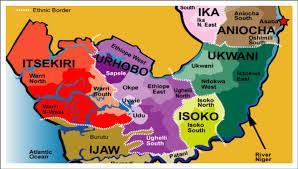The Delta State Government has been dragged to court over allegations of discriminatory and marginalization in allocation of public funds and projects, sparking outrage among residents of Isoko South and Isoko North Local Government Areas. The lawsuit, filed by prominent lawyer Ejumejowo Anthony Asuotu, Esq., and Dr. Oke Michael Aziakpono, challenges the legality of the state’s N230 billion capital projects allocation for 2025, which allegedly excludes the two local governments.
The plaintiffs argue that the allocation violates Sections 1(3), 14(1), 15(1), 16(1), 17(1), and 42 of the Nigerian Constitution, which guarantee equality and prohibit discrimination. According to court documents, the Delta State Government earmarked the massive sum for projects across 23 local governments, deliberately sidelining Isoko South and Isoko North.
The case hinges on three critical questions: whether the Delta State Government can legally discriminate against the Isoko people in resource allocation, whether the State House of Assembly can enact such a discriminatory budget, and whether the Governor’s assent to the Appropriation Law was constitutional.
Read also:
- The justifiable marginalization cry of Isoko People
- Uproar in Isoko as Delta approves N230 Billion projects, ethnic nationality left out
- Knocks, kudos as Delta Govt counters Isoko over N230 Billion project exclusion cry
The applicants are seeking sweeping judicial orders, including a declaration that the exclusion of Isoko South and Isoko North from the budget and project allocation is unlawful and unconstitutional. They also demand the cancellation of the N230 billion allocation, an injunction restraining the government from further discriminatory practices, and the outright nullification of the entire 2025 Appropriation Law.
The lawsuit has ignited fierce debates across Delta State, with many Isoko residents accusing the government of marginalization. Legal experts suggest that the case could set a precedent for how states allocate resources, emphasizing the constitutional mandate for equitable distribution.
The High Court in Oleh is expected to hear the case soon, with the plaintiffs represented by Ejumejowo & Associates. The outcome could have far-reaching consequences for fiscal governance and minority rights in Nigeria.
